Rochester psychologists make the case for an approach to FASD based on patients’ strengths rather than deficits.
Editor’s note: This story was originally published on November 5, 2021. It has been updated and republished to reflect the 2023 release of Fetal Alcohol Spectrum Disorders: A Multidisciplinary Approach.
One evening Amy Rothfuss slipped a notebook into her Bible without paying much attention. The next morning, she looked at the passage. Isaiah 54:4.
“Do not be afraid; you will not be put to shame. Do not fear disgrace; you will not be humiliated. You will forget the shame of your youth and remember no more the reproach of your widowhood.”
She took it as a sign. “It’s time to shine a bright light on this hidden disease,” the Rochester native says. “I am not ashamed of my child.”
Fetal Alcohol Spectrum Disorders: A Multidisciplinary Approach
Christie Petrenko, a research psychologist at the University of Rochester, coedits a concise yet comprehensive resource on FASD for clinicians and researchers. Written by experts in the field, the book guides prevention efforts, the diagnostic process, school and community interventions, and global policy efforts. (Springer Publishing, 2023)
Rothfuss’s 11-year-old son Heratio (whose last name his mother asked to withhold) has fetal alcohol syndrome (FAS)—brain damage sustained in utero and traceable to pre-natal alcohol consumption.
FAS, which comes with subtle facial characteristics, is a subgroup—although not necessarily a more severe diagnosis—of the all-encompassing fetal alcohol spectrum disorders (FASD). Children and adults with FASD struggle with lifelong learning and behavioral problems, and without appropriate supports are at high risk for adverse conditions, such as mental health problems, trouble with the law, school disruption, and substance use.
Because of the condition, Heratio’s decision making is impaired and he struggles to control emotions and impulses. At school, he gets support services and a personal helper in his special education classroom. Departures from routines that others might find simply irritating cause Heratio acute distress.
What happens next depends in large part on the adults around him. If they whisper soothingly and engage him in breathing exercises, they may avert a meltdown. Conversely, loud voices or chiding may result in Heratio’s running out of the classroom, possibly hitting staff or fellow students, sometimes taking off his shoes and throwing them, or lying on the floor—crying. “Chaos,” as his mother puts it.
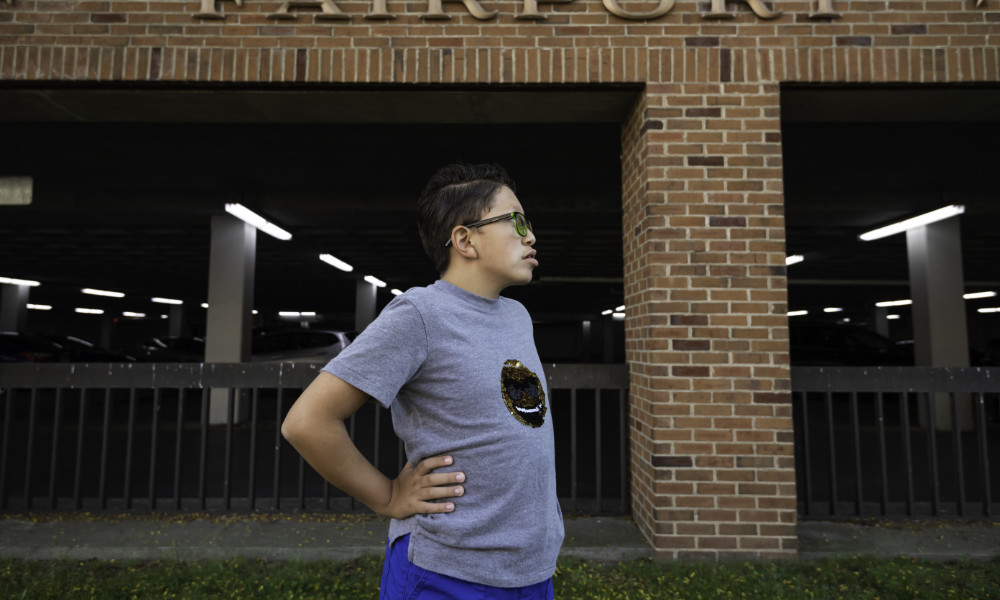
Fetal alcohol spectrum disorders are underrecognized
12 signs and symptoms common in children and adults with FASD
Symptoms of fetal alcohol spectrum disorders can include:
- Trouble with learning, memory, and attention span
- Difficulty communicating, understanding language, decoding meaning
- Being given to hyperactivity, impulsivity, and other behavioral problems
- Poorer social skills
- Vision and hearing problems
- Specific subtle facial features—small eyes, thin lip, flattened groove (philtrum) under the nose
- “Failure to thrive” during early childhood, or low height or weight
- Difficulty following multiple-step instructions
- Difficulty transitioning from one activity to the next
- Difficulty with being flexible and adjusting to changes in routine
- Difficulty regulating emotions
- Acting younger than chronological age
FASD characteristics are not unique—they are individually present in a variety of other neurodevelopmental and genetic conditions, such as autism spectrum disorder, ADHD, and intellectual disability. Childhood trauma can also play a role. A careful evaluation is important to diagnose and treat FASD.
- Here’s a directory of providers in your area.
FASD is a pressing public health problem with experts estimating that it affects just as many people as autism, if not more. According to the National Institutes of Health, 1 to 5 percent of Americans may have FASD, making the condition more prevalent than previously recognized. And yet, it is often missed. One reason is the shame of having borne a child with FASD.
Rothfuss is Heratio’s biological mother. Her willingness to speak publicly about her past is almost unheard of among biological moms of children with FASD.
“I was not in a good spot then,” says Rothfuss of her life before Heratio. “I am a different person today.”
At the time of Heratio’s conception, Rothfuss was physically and verbally abused by her late partner, Heratio’s father. Both parents were addicted to cocaine and Rothfuss drank at the end of the night to calm herself down from the stimulation of the drug. Living in the basement of her partner’s mother, with no health insurance, her life—by her own account—was out of control. She was about six months along before she realized she was pregnant.
Rothfuss credits her newfound faith, along with treatment for her drug use, for turning her life around and giving her the strength to speak up. But for most biological mothers, the stigma that comes with having contributed to one’s child’s disability is simply too great and the vast majority remain in the shadows, often too ashamed to ask for help.
When parents—biological or not—do seek help, they often have trouble getting the condition diagnosed. That’s because a diagnosis generally requires a specialty clinic, which are few and far between.
In New York state, there are only two: one in New York City, consisting of a single provider; and the other, the University of Rochester’s FASD Diagnostic and Evaluation Clinic, a partnership between the Department of Developmental and Behavioral Pediatrics at Golisano Children’s Hospital and Mt. Hope Family Center.
Mt. Hope Family Center is a unique resource. Affiliated with the Department of Psychology in the University’s School of Arts and Sciences, it combines scientific research, clinical services, and hands-on mentoring and training in one facility. In a typical year, the center provides evidence-based prevention and intervention services for a host of conditions, including FASD and trauma, to more than 900 children and families in the Rochester area.
At the nexus of the FASD partnership between the Mt. Hope Family Center and the University’s Medical Center is Christie Petrenko. A research psychologist at Mt. Hope with joint appointments in psychology and in pediatrics, Petrenko has been involved in research and clinical interventions with children with FASD and their families for more than 15 years.
Lynn Cole, clinical services director at UR Medicine’s division of Developmental and Behavioral Pediatrics, says their FASD specialty clinic, which has a capacity to see about 220 children each year, has made the University a big draw. “Sometimes families are driving five to six hours to come to Rochester for a diagnosis,” says Cole, who works closely with Petrenko on FASD evaluations. “We are also seeing kids from Vermont and Pennsylvania and are even getting requests from overseas now.”

It’s a drive Amy Bonn ’89 is glad she made. She lives in Plattsburgh, New York, with her husband, Richard Schaefer, and their daughter, Katharine, whom they adopted at just over a year old.
Early on Bonn and Schaefer suspected that something was amiss with Kate—which she prefers to be called. She just wouldn’t sleep. At times, she’d run on one or two hours of sleep a night for three or four consecutive days. In response, her parents bought her a 14-foot high, inflatable water slide. “Our thinking was—it’s fun, great exercise, and will bring people over. And I remember she was on that for hours,” recalls Schaefer. Any kid, they thought, would eventually keel over and sleep like a rock. Not Kate.
They saw five different specialists, including psychologists, a psychiatrist, even another FASD expert. Two of the clinicians misdiagnosed Kate. The other three couldn’t settle upon a diagnosis.
Next came a string of failed behavioral therapies. Meanwhile, leafing through her alma mater’s magazine, the Rochester Review, Bonn found a short piece about a study on FASD by Petrenko. Bonn knew she needed to get her daughter to Rochester. A couple of months later, she and Kate, then 9, made the five-and-a-half-hour journey from Plattsburgh to the University of Rochester Medical Center, where they met both Cole and Petrenko. The two specialists put Kate through a battery of tests. There was no doubt—Kate had FAS.
While no parent wants to hear that diagnosis—finally having a definitive answer was “transformative,” according to her mother. “It was the most important day of Kate’s life.”
A strength-based approach to FASD
The Rothfuss and Bonn-Schaefer families are both ensconced in the network of support forged at Mt. Hope Family Center. Rothfuss first met Petrenko at Family Night—a monthly, Friday-evening program run jointly by the center and the division of Developmental and Behavioral Pediatrics. At Family Night, “we have topics for caregivers and therapeutic activities for kids of different ages,” says Petrenko. They serve pizza to the group, which typically includes between 25 and 35 adults and 40 children, which is the maximum they can accommodate.
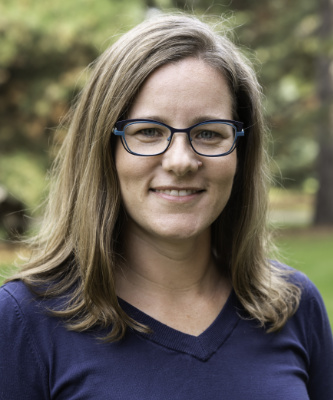
Rothfuss, Bonn, and Schaefer are also part of a private Rochester parent-run FASD Facebook group for which Petrenko serves as a source of information. They say the group, with its posts of new studies and shared experiences, has been a lifeline. Just knowing you’re not alone helps.
Perhaps most importantly of all, they know their families are finally getting the care they need.
These days, that means both Heratio and Kate benefit from a new paradigm in FASD treatment. After nearly two decades of research in the field, Petrenko is urging a shift in treatment toward a holistic approach that focuses, among other things, on people’s strengths rather than just their deficits, and on making changes that are important to the patient, not the practitioner. The new conceptual model, which she developed with her graduate student Carson Kautz-Turnbull, is described in their article “From Surviving to Thriving,” published in the International Review of Research in Developmental Disabilities. In July, Petrenko spoke about the new paradigm on a podcast for the nonprofit organization FASD Success.
“We in the medical community often focus on a specific problem and try to reduce it,” says Petrenko. Instead, practitioners ought to ask their patients to reflect on their own qualities and values. What are you good at? How do you contribute and fit into your family? How do those around you support you? What coping strategies work best for you? What do you need to thrive? What do you want to change about your life?
In a forthcoming paper in the American Journal on Intellectual and Developmental Disabilities, Kautz-Turnbull, Petrenko, and Tangeria Adams, who received her PhD in clinical psychology from Rochester earlier this year and is now a postdoctoral fellow at Genesee Valley Psychology, will present results of a study in which they looked at the strengths of children with FASD, including personality characteristics, individual aptitude and skills, and positive effort and persistence.
They found that nearly all caregivers described their children as friendly, helpful, kind, and loving—terms psychologists refer to as exhibiting social motivation. Yet, more importantly, the team also noticed while conducting interviews for the qualitative study that the standard approaches used so far proved at times inadequate at capturing and assessing the full spectrum of what parents and caretakers told them.
“Can we measure their answers fully with the measures we already have? No,” says Kautz-Turnbull. “As a consequence, we’re missing something really important in research on kids with FASD.” What she and her coauthors were getting instead was a “totally new construct.”
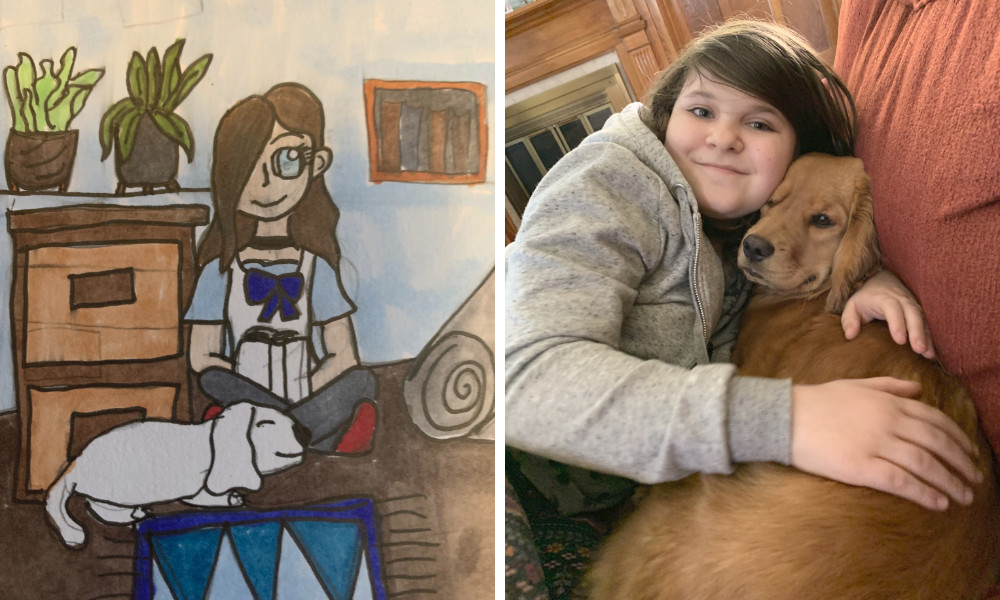
The team also asked parents about their children’s influence on the family. “People don’t often think of kids with disabilities as having a positive effect on their families,” says Petrenko. “It’s a question that researchers just hadn’t asked.” Instead, the focus is usually on stress and burden. The challenges of raising a child with FASD are, of course, real. Yet, families told the researchers that their children “completed” their family, or that despite the challenges they also brought “joy” and “something really meaningful” to them. Subjective attributes such as strengths and positive influences are not accounted for in the regular measures clinicians use to assess a child’s functioning—an approach Petrenko calls “deficit-focused research.”
Kate and Heratio’s parents are delighted and relieved by the new paradigm. The strength-based approach suggests treatment and interventions be individually tailored, playing to a child’s natural strengths and building on already-existing support systems.
Says Schaefer: “Yes, Kate has definite learning difficulties. But she’s very creative, which may be the way in which she compensates.”
To Kate, creativity is her “superpower.” In the last year, she’s been busy making greeting cards, which she sells on her own Facebook page, Katez Kardz. Business is swift and Kate has so far donated $450 of her proceeds to a local charity, the Child Care Coordinating Council of the North Country, to help other families defray the costs of traveling to Rochester and staying in a hotel while their child, too, undergoes FASD testing at the University of Rochester Medical Center.
Kate’s mother likens the asset-based approach to her own community development work: “You wouldn’t go into a community and say, ‘Oh, you have the highest diabetes rate, you live in a food desert, and your voting rate is incredibly low’—when you’re trying to affect change.” Instead, Bonn says, you need to focus on existing assets and keep things in perspective. “If something bad happens during Kate’s day and she loses her temper, then it’s one moment in time, just a few minutes of her whole day. But if educators, policymakers, and physicians focus on those 10 minutes only, then they’re not using the rest of the day to fix it.”
To Heratio’s mom, the new approach means seeing her “amazing and funny” son as “a person, not a problem.”

Meeting the challenges of access
For the Bonn-Schaefer family, Kate’s diagnosis meant direct help: for people with an official FAS diagnosis, the State of New York provides a generous safety net that starts in the school and extends well beyond with support services. “She’ll have people who can help guide her make life choices, besides us,” says Bonn. “And that is just an incredible relief.”
Yet, Kate is one of the lucky ones when it comes to support services from the New York State Office for People with Developmental Disabilities (OPWDD). Fewer than 10 percent of children on the entire FASD spectrum—only those with the specific FAS label—qualify. The rest are left with what Petrenko calls “woefully insufficient” support. She, Cole, and other researchers and practitioners have been working for years to try to rectify what Petrenko calls a “glaring inequality” compared to how OPWDD supports other disabilities.
“I’m thrilled that Kate has these supports, but it has been really discouraging and stressful to those families who have tried hard to get the same services for their children with similar or greater difficulties than kids like Kate, but who have a different diagnosis on the FASD spectrum and have therefore been repeatedly denied,” says Petrenko. “The OPWDD’s rationale just doesn’t make sense.”
Research shows children with FASD who receive appropriate developmental disabilities services have better outcomes. The problem isn’t just in New York; it’s happening elsewhere in the US, too. That’s why the nonprofit FASD United (formerly the National Organization on Fetal Alcohol Syndrome) has taken notice and is looking for a nationwide response to the problem.
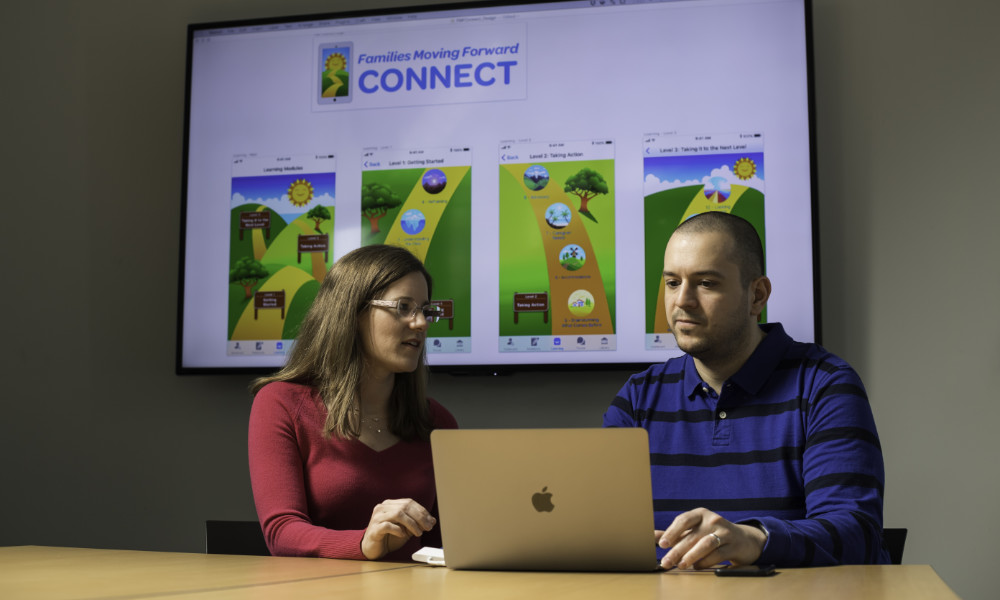
Better support, of course, goes hand-in-hand with correct detection and intervention, which means more and better-trained medical professionals who are able to spot and diagnose the disability correctly.
When Rochester’s FASD diagnostic clinic was established about six years ago, “we quickly recognized that our capacity would never be large enough to serve all of the kids who need care,” says Cole.
To that end, Cole has developed a program that builds upon Project ECHO (Extension for Community Healthcare Outcomes), which began at the University of New Mexico as a model for training community clinicians, to provide care for people with chronic and complex health conditions. Cole, with help from Petrenko and other colleagues, has adapted the existing model for a pilot ECHO FASD project, trying to train more regional clinicians on how to diagnose the complex disorder.
Meanwhile, the Rothfuss and Bonn-Schaefer families have been beta testing Petrenko’s mobile FASD app—FMF Connect—that she has been developing with Cristiano Tapparello, a research assistant professor in the University’s Department of Electrical and Computer Engineering. The app, which is part of the Collaborative Initiative on FASD, funded by the National Institute on Alcohol Abuse and Alcoholism, is expected to be widely available in 2022. It’ll give parents of children with developmental disabilities access to online information that is consistent, high-quality, and readable.
“FASD has sat in the dark for too long,” says Heratio’s mother. “If nobody points big lights at the problem, others will never know.”
Kate, meanwhile, wants to help others in the same boat. Knowing what made her different has been vital to her.
“It’s not really my fault that I might have trouble in school sometimes,” she says. “I want other kids to know there’s nothing wrong with them—that there’s help, and that it’s not their fault.”
With that she reaches for another piece of blank cardstock, then into her large pouch of felt tip markers. The next greeting card order awaits.
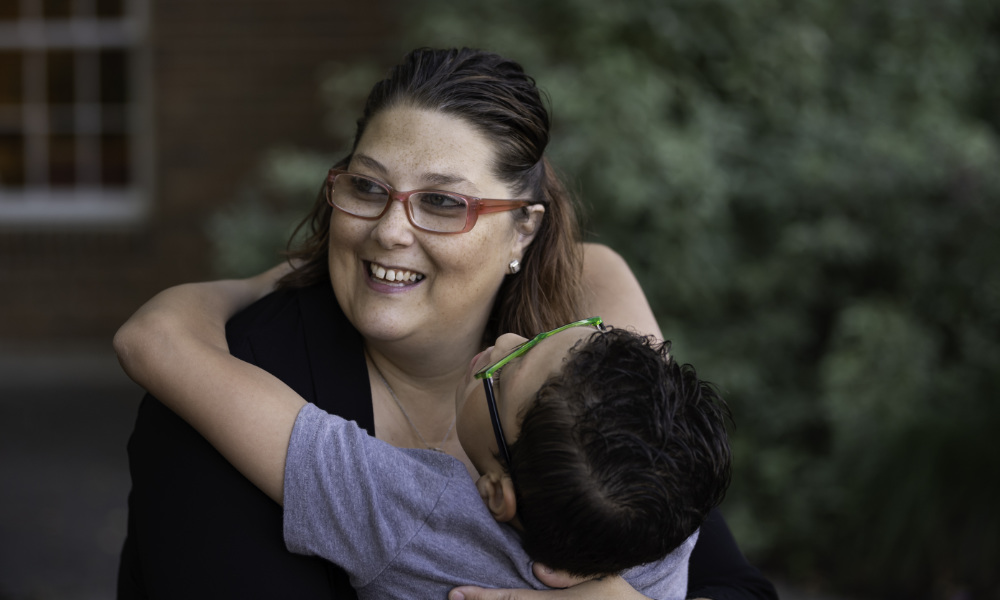
FASD resources
- Email RocFASD@gmail.com to connect with the RocFASD Facebook group, a private online group exclusively for families of children with an FASD diagnosis.
- Wondering if your child needs an evaluation for FASD? Call UR Medicine’s division of Developmental and Behavioral Pediatrics at (585) 275-2986. You can also look up providers by state.
- Sign up to receive updates about the FMF Connect app, which is expected to be widely available in 2022.
Read more
 Partners play pivotal role in pregnant women’s alcohol use, which affects their babies’ development
Partners play pivotal role in pregnant women’s alcohol use, which affects their babies’ development
Rochester psychologists say successful intervention efforts need to include partners of mothers-to-be.
 Expert team creates training manual to help providers recognize fetal alcohol spectrum disorders
Expert team creates training manual to help providers recognize fetal alcohol spectrum disorders
University of Rochester experts have helped develop a handbook for health care providers to recognize and diagnose fetal alcohol spectrum disorders.
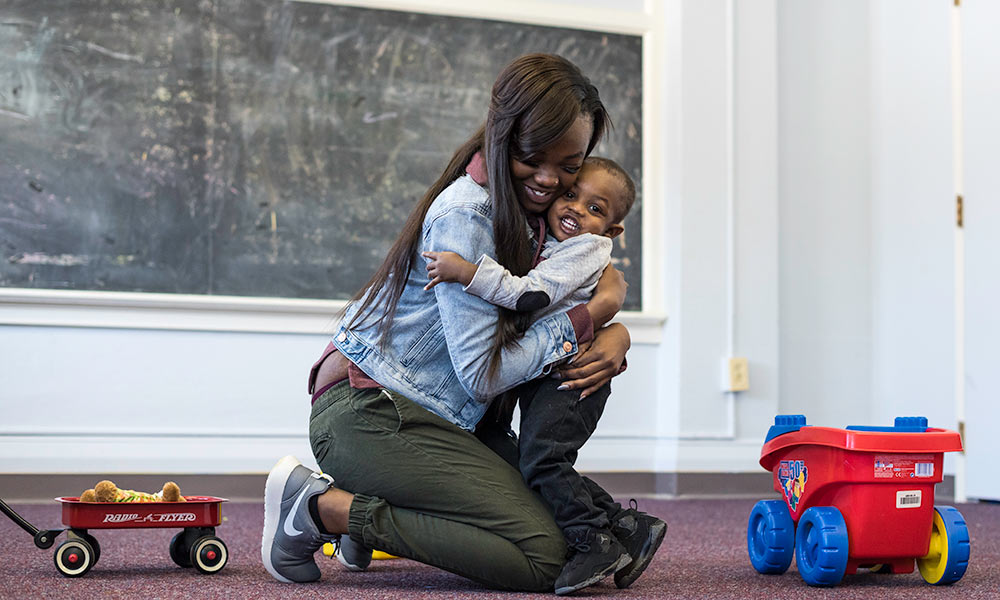 At-risk families find research-driven services at Mt. Hope Family Center
At-risk families find research-driven services at Mt. Hope Family Center
The Mt. Hope Family Center’s researchers and clinicians provide evidence-based services to at-risk families. They’re also training the next generation of clinicians and research scientists.




